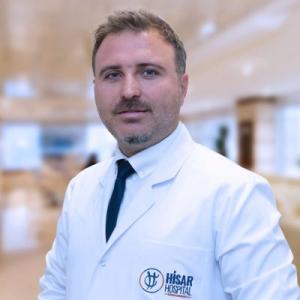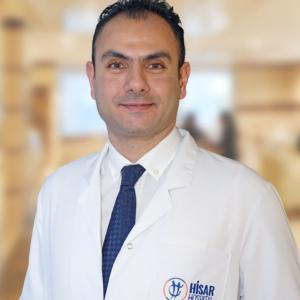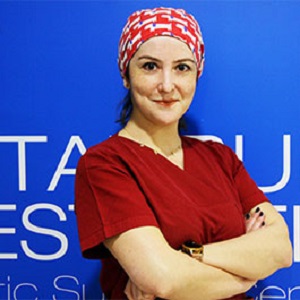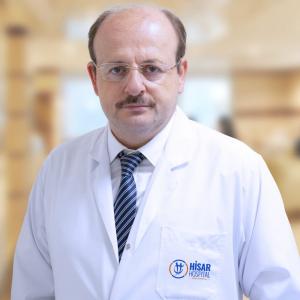It's normal to feel sad after a break-up, the death of a loved one, or after losing a job, it's called sorrow or grief. What is abnormal is when this feeling lasts and does not disappear. That is depression, and it is not a state of unhappiness, it is indeed a sickness that requires medical attention.
Fortunately, depression does have a treatment. This one combines several methods (psychotherapy and antidepressants). However, this cannot be done without receiving the help of a mental health doctor. Turquie Santé will help you understand your depression, so you can better treat it with the help of the best psychiatrists and psychologists in Istanbul.
We're Here to Help.
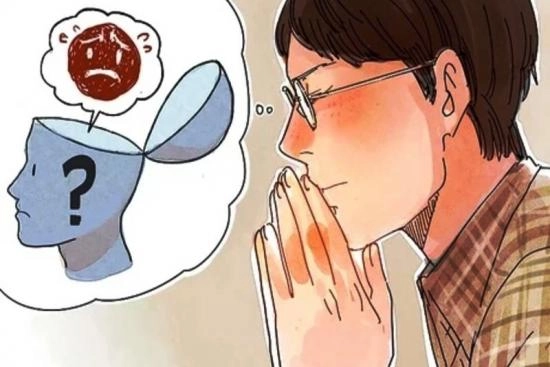
What is depression?
Depression also called “depressive disorder” or “nervous breakdown” is a very common illness. Despite what people often assume, this illness has nothing to do with "blues" or "unhappiness". It is a disease that affects the brain and the body at the same time and can prevent us from having a normal life.
This pathology most often occurs in periods called “depressive phases” or “depressive episodes”. These periods can last from a week to years.
There are several types of depression which can be mentioned as follows:
- Reactive depression: often triggered by a social factor;
- Endogenous depression: It is a depressive state due to biological factors;
- Neurotic depression: This is depression that generally affects people with weak personalities;
- Postpartum depression: This is a depressive disorder that a woman suffers from after giving birth;
- Depression in the elderly: As we age, humans are confronted with several events (loss of a spouse, illnesses, and abandonment). This can lead to a chronic depression;
- Seasonal depression: It is a depression that occurs in winter, it is naturally due to the lack of sunlight;
- Manic-depressive disorder: This is manic-depression, also called "bipolar disorder"
- Masked depression: This is depression in which the psychological signs do not appear. The symptoms of this disease are purely physical, between muscle pain, fatigue, and insomnia.
What are the causes of depression?
Depression can result from several factors, among which we can distinguish:
Social factors
Some people with depression experience hardship during their childhood. These promote the onset of depressive disorders in adulthood. Usually, it could be a childhood badly lived with parents, sexual abuse, etc.
Grief is a normal reaction to the loss of a loved one. However, this reaction can become a real depressive phase if it lasts more than two weeks.
We can also add to these factors:
- Dismissal;
- Romantic breakup;
- A family or professional problem;
- Chronic illness or disability;
- Alcoholism, smoking, or dependence on other addictive substances.
Genetic factors
Due to a genetic vulnerability, some people are more likely than others to have depressive disorders. We are not all the same when it comes to psychological pain. Some of us take it better than others.
For example, a person with a depressive parent is four times more likely to develop depression.
It is important to know that this vulnerability only manifests itself in the presence of unfavorable environmental factors. The combination of social and genetic factors most often leads to depressive disorders.
Neurobiological factors
The brain of a depressive person has irregularities in neurotransmitters such as dopamine, oxytocin, and serotonin.
According to studies, the density of the gray matter in the limbic system in depressive patients is decreased. This decrease is even greater in patients who have suffered from depression for more than three years.
This irregularity in the brain structure is followed by a deterioration of cognitive functions such as attention, flexibility, or vigilance.
What are the symptoms of depression?
There are two types of symptoms a depressive person shows:
Physical symptoms
The most common physical symptoms of depression are:
- Depleted energy or hyperactivity;
- Intense general fatigue;
- Sleep disorder: Insomnia or hypersomnia;
- Appetite disorder: Either the patient eats too much, or he does not eat at all;
- Decreased libido;
- Unexplained pain: headache, abdominal pain, stomach pain.
Psychological symptoms
The most observed psychological symptoms in people with depression are:
- Sadness ;
- A loss of interest in their favorite activities;
- Lack of self-confidence, feelings of failure or guilt;
- Difficulty concentrating;
- Difficulty in decision-making;
- Suicidal urges.
What are the consequences of depression?
There are several consequences of depression. We can cite suicide. Other consequences can arise, such as:
- Repetitive work stoppage (job abandonment, paid sick days)
- Disabling muscle and joint pain
The consequences of depression on the family and behavior
Some symptoms related to depression create problems within the couple, such as:
- Insomnia or hypersomnia
- The complaints
- Muscle pain
- Decreased sexual performance
People with depression can sometimes behave in a way that makes their depression worse, such as:
- Alcohol and drug use
- Self-medication with sleeping pills or treating the sleep problem
- A decrease in physical activity leading to metabolic pathologies and cardiovascular diseases
Postpartum depression can also lead to the development of the depressive disorder in children.
The consequences of depression on cognitive and motor functions
Depressive disorder is followed by a feeling of exhaustion, which is often made worse by insomnia or hypersomnia. Sleep disorders impair the following functions:
- Motor skills: loss of energy, decreased libido, motor slowdown
- Intellectual capacities: memory lapses and learning difficulties
How can you help someone with depression?
If a loved one is suffering from depression, and you want to help them, here's what you can do:
- Talk to this person, and make sure he's aware of his problem;
- Explain that depression is a mental health disorder that can be treated by a doctor specializing in psychiatry;
- put in your mind that this person is suffering from an emotional problem, so don't be too hard on him;
You have to be patient. It takes time for a depressive person to be able to open up to you. Once the person lets you know how he is feeling, don't try to comment on their situation. At this level, you just have to listen to him, understand him, and reassure him that he is not alone in this struggle.
You cannot cure your friend or loved one's depression. However, you can encourage him to see a doctor or a psychotherapist. You can also refer him to Turkey Santé for advice. So, He can get a free quote from the best depression treatment clinics in Istanbul, Turkey.
Treatment of depression in Turkey: the steps
You cannot cure depression overnight. The treatment of depression involves the following steps:
- Medication management
It's a phase that lasts three to six weeks. It consists of administering to the patient medicines that restore the functions of the brain. This way, the patient regains his appetite, energy, and sleep.
- Stabilization
It's a period of consolidation that lasts between six months and a year, depending on the level of the patient's depression. It aims to stabilize the patient's condition so that the symptoms do not reappear.
- Psychotherapy
After the biochemical treatment, the patient must once again regain his positivity and reshape his perception of life. The duration of this psychotherapy differs from one patient to another.
How to avoid relapse after recovering from depression
Many patients stop their treatment during the stabilization phase at the risk of relapsing again. It is therefore necessary not to interrupt your treatment even if the symptoms disappear completely.
Only the attending doctor (or psychiatrist) can gradually stop treatment if he notices that the patient is completely cured.
Participating in group therapy or cognitive therapy is also recommended.
Treatment of depression in Turkey: what are the benefits?
If you choose to spend a medical stay in Turkey to cure your depression, you can be sure that you will have:
- Anonymity: all the proceedings are done anonymously if you wish so. Respecting your medical confidentiality is a priority
- Your autonomy and privacy are guaranteed
- ISO certified clinics and hospitals accredited by JCI
- Interpreters trained in psychotherapy at your disposal
- Very high success rates (close to 100%)
- Highly qualified doctors with several years of experience
- Quality medical care
Price of Depression Treatment in Turkey
Without a doubt, Turkey has achieved many feats in the medical sector. However, the prices offered by private clinics and hospitals in Turkey remain very competitive. So you can enjoy the beauty of this country and cure your depression at reasonable prices.
Our counselors will guide you in your choice and help you obtain a free price estimation. Contact Turquie Santé to choose the best depression treatment clinics in Turkey.
Share this page
Among our doctors
There are several signs that you may be suffering from depression, such as:
- Weakness, muscle and joint pain;
- A deep and unexplained sadness;
- A decrease in concentration and libido;
- Loss of appetite and sleep problems.
Studies have shown that most people with depression have a genetic problem. It is believed to be an abnormality in the gene responsible for the genesis of the protein that transports serotonin (SERT).
The price of treatment for depression is variable and depends on the length and number of therapy sessions and the care employed during the stay.


